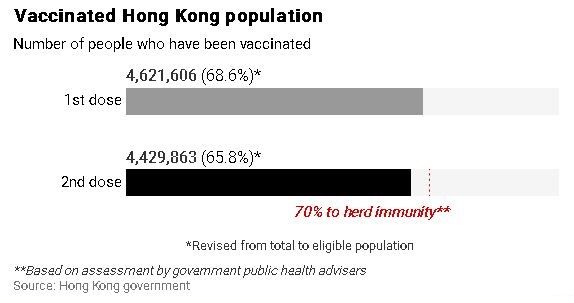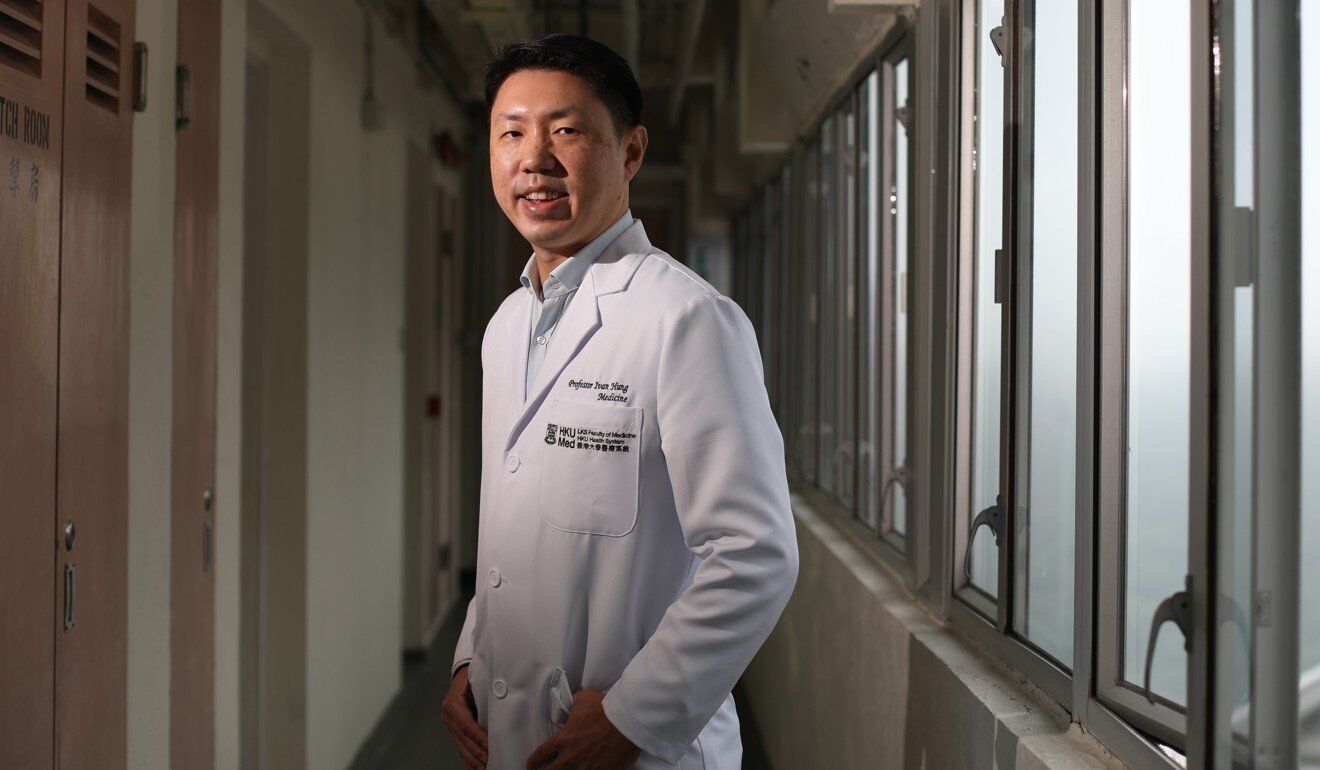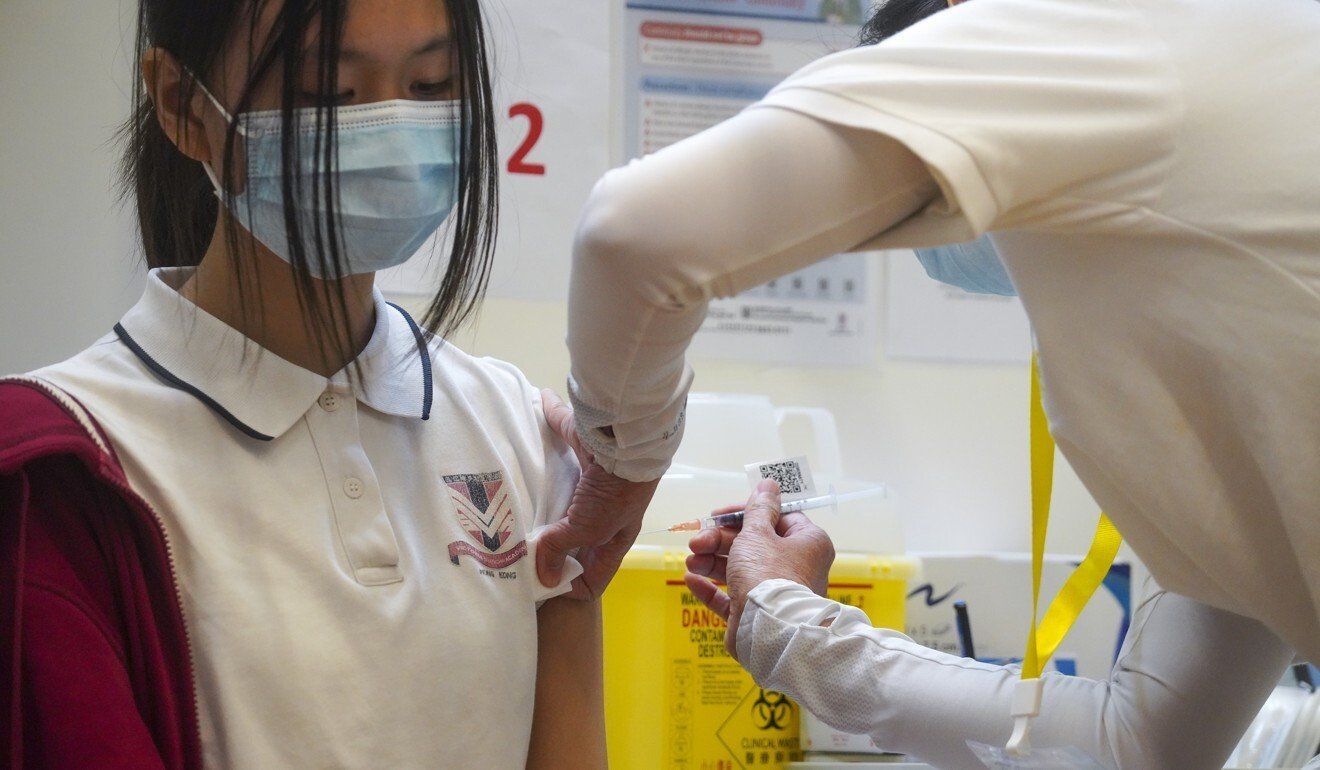Hong Kong News

Covid-19 boosters for Hong Kong ‘in November’; jabs for children aged 5-11 expected
Covid-19 booster shots for Hongkongers could be available in November at the earliest, the Post has learned, but those choosing a third Chinese-made Sinovac jab may need another dose months later, according to an expert.
The latest development in the city’s vaccination drive emerged on Saturday while it was also revealed that authorities were likely to approve the use of the German-produced BioNTech vaccine for children aged five to 11 “very soon”.
Professor Lau Yu-lung, who chairs the Scientific Committee on Vaccine Preventable Diseases under the Centre for Health Protection (CHP), told the Post that boosters of the two vaccine types used in the city could be given out in November.
“The administration of the third dose could begin by the end of November,” Lau said, noting he was told by health officials of the planned arrangement.
Two other sources familiar with the matter also confirmed the timeline of the booster programme.

The centre’s joint scientific committee had on Wednesday recommended that immunocompromised people, the elderly aged 60 or older and workers with high exposure risk to Covid-19 would need a booster shot.
Those who had received the Sinovac jabs were all recommended to get a booster shot even if they did not come under high-risk groups.
Lau said on Saturday those taking boosters could choose between Sinovac and BioNTech vaccines, regardless of the type they had received for their earlier two shots.
He noted the arrangement was confirmed in a Saturday meeting between experts and Chief Executive Carrie Lam Cheng Yuet-ngor.
 Professor Ivan Hung, a co-convenor of a government panel on vaccine reactions.
Professor Ivan Hung, a co-convenor of a government panel on vaccine reactions.
Other attendees of the session, who declined to be named, said experts had shared their opinions with Lam on boosters and vaccination among children.
Professor Ivan Hung Fan-ngai, a co-convenor of a government panel on vaccine reactions, said people sticking with the Sinovac vaccine for their third shot might require a fourth dose three to six months later, as the antibody levels it induced were lower than that of the BioNTech one.
He added that Sinovac was conducting studies on boosters based on the Delta coronavirus variant, as well as on doubling the dosage.
Earlier this week, the US Centres for Disease Control and Prevention stated in its latest guidelines that immunocompromised people might require a total of four Covid-19 vaccine doses in general.
Hung also said Hong Kong was likely to give the nod to vaccinate children aged five to 11 with BioNTech shots.
On Friday, the US Food and Drug Administration authorised the use of the BioNTech vaccine for children aged five to 11, making the shots available to 28 million American youngsters.
Hung said he would recommend Hong Kong children in the same age group receive two shots of the BioNTech vaccine at one-third the adult dosage.
“The clinical data for BioNTech shows very good Covid-19 protection for this age group, almost 100 per cent,” he told a Saturday radio show.
“There was no case of myocarditis being found among them,” he added, referring to a rare side effect that has caused heart inflammation in a small number of teens.
Hung said the strong protection the BioNTech vaccine offered against the Delta variant of the virus made its approval very likely.
“I think the chance is high. Despite the fact that we’re seeing very few Covid-19 infections, we need to look at the long term,” he said, expressing hope that the vaccination campaign for children could start within a month.
BioNTech shots are already available in Hong Kong for those aged 12 and above, with the scheme approved in June. The dosage for recipients in this age group is the same as that for adults, though only one jab is recommended.
Hung said two doses would be needed for the youngsters to stay protected from the Delta variant.
“The protection against the Delta variant with one vaccine dose is not sufficient, that’s why there are reasons to believe that two doses will be needed,” Hung said, noting that the subsequent shot could be administered around eight to 12 weeks after the first dose to lower the chance of developing myocarditis.
But Lau called on authorities to focus not only on the vaccine’s efficacy but also its safety.
He noted that there had been more myocarditis cases among teenagers since the BioNTech shot was made available to them in June.
“They need to look at a vaccine’s overall data including its efficacy, safety, their antibody levels and the situation in Hong Kong for an overall assessment. Don’t fail to see the wood for the trees.”
Sinovac has submitted an application to Hong Kong for vaccinating children as young as three with its jab, and the government review is still in progress.
Overall, 4.61 million people in the city, or 68.5 per cent of the eligible population, have taken at least one shot.
News of the vaccine programme’s anticipated expansion came as Hong Kong confirmed three new Covid-19 cases on Saturday, all imported. The arrivals, one each from the Philippines, Germany and Indonesia, took the city’s total tally to 12,345, with 213 related deaths.
Fewer than five people tested preliminary-positive for the virus.
With the Covid-19 situation in Hong Kong remaining stable, government pandemic adviser Professor David Hui Shu-cheong told mainland Chinese media on Friday that the border between both sides could be fully reopened in February next year, based on Macau’s experience.
He said the casino hub took about four to five months to achieve full border reopening with the mainland, after the first meeting between officials on the matter.
 Hong Kong approved usage of the
Hong Kong approved usage of the 










